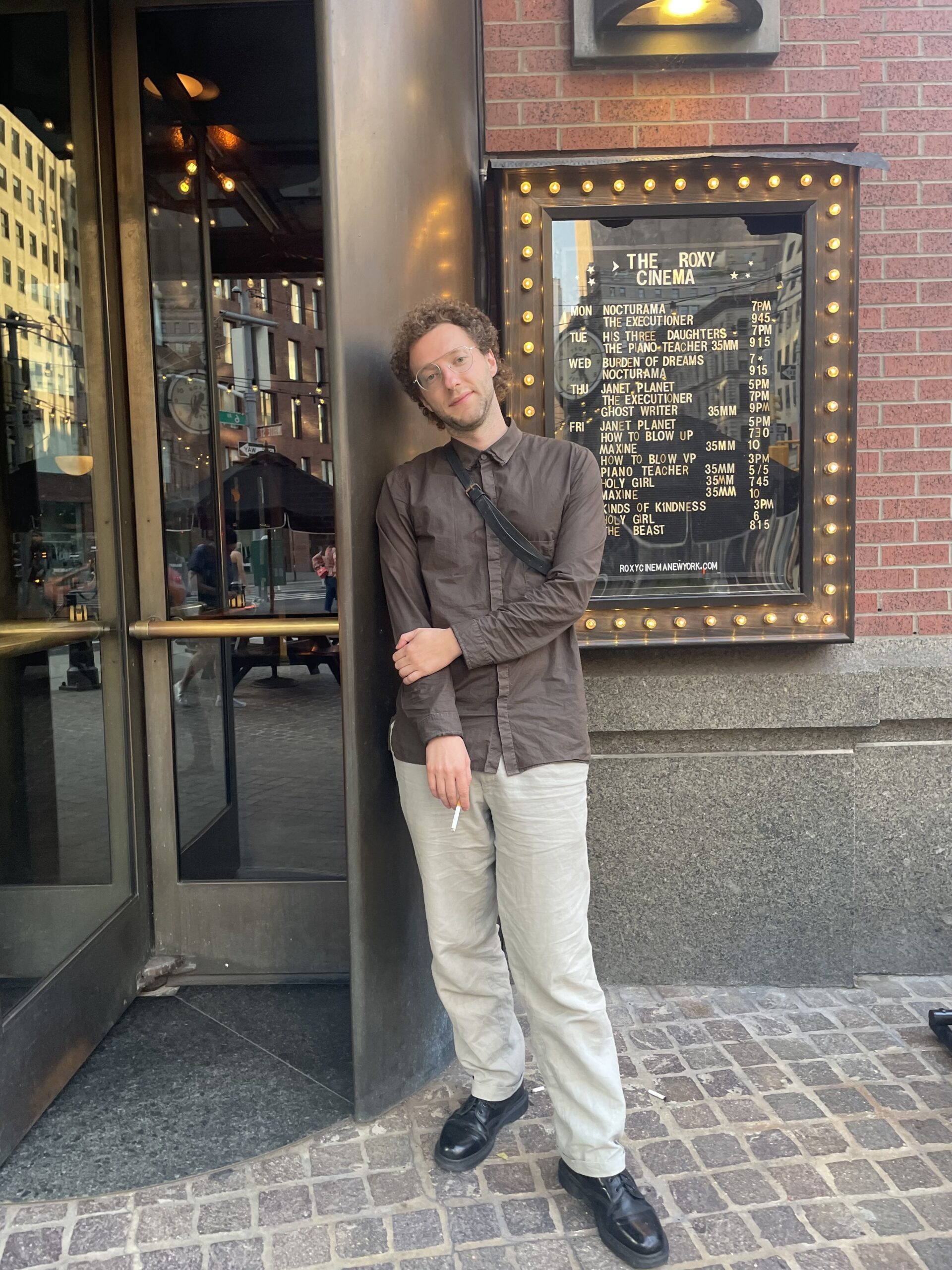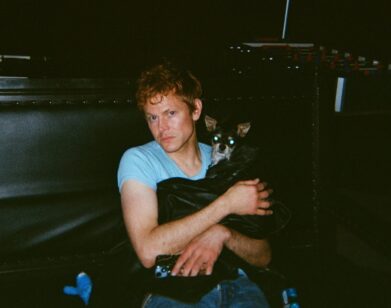SMOKE BREAK
“The Movie Doesn’t Promote Eco-Terrorism”: A Seven-Minute Cig With Filmmaker Daniel Goldhaber
FRIDAY 6:30 PM AUGUST 23, 2024 TRIBECA
When Harvard Law School hosted a screening of the political thriller How to Blow Up a Pipeline earlier this year, Ted Cruz was quick to tweet that the university was promoting domestic eco-terrorism. But filmmaker Daniel Goldhaber is not one for polemics. For a story about sabotage, subterfuge, and the revolutionary optimism of a motley crew of climate activists, “the idea,” he told me last weekend, “is that people walk away from that piece of fiction asking questions about what’s taken place inside of it.” Goldhaber’s upcoming film, Faces of Death, which is set to star Charli XCX, Barbie Ferreira, and Dacre Montgomery, is primed to be similarly explosive. The remake of the 1978 viral VHS snuff film of the same name, he explained, interrogates our relationship to violence and death in the age of social media. Outside the Roxy Hotel’s in-house cinema, where Goldhaber and his cast conducted a Q&A after screening Pipeline in a lush new 35mm print, we lit up some Marlboros and chatted about progressives preaching to the choir, the best movies of 2024, and how his collaboration with the Brat superstar came about.
———
LILY KWAK: To start off, how does it feel to return to your film?
DANIEL GOLDHABER: It’s always been a dream of mine to see a movie I made on film. We shot How to Blow Up a Pipeline on 16-millimeter and we were able to make a 35-millimeter print. But I haven’t seen it yet, so I’m going to watch that tonight. That’s very much like a bucket list moment for me.
KWAK: That’s exciting. Do you return to your film often?
GOLDHABER: No. Well, periodically. The more movies I make, the less I want to return to any of them, which is interesting. I think after my first movie, I did return to it a lot. I think I couldn’t quite believe I’d made a movie. But now, the more it becomes a job, the less you want to do your job when you’re not doing your job, to an extent.
KWAK: So, is The Roxy promoting domestic eco-terrorism today?
GOLDHABER: No, but the movie isn’t promoting eco-terrorism. I think that the movie is actually questioning what eco-terrorism is. The movie is about eight people who believe that the destruction of a piece of oil infrastructure is an act of defiance against the fossil fuel industry and its extractive practices—and that it’s a justified act. The provocation of the movie is to ask audiences, based on their reasoning and on their backgrounds, “what do you think of what they’ve done?” But it’s a movie, it’s a piece of fiction, and I think the idea is that people walk away from that piece of fiction asking questions about what’s taken place inside of it.
KWAK: Did people ever reach out to you to share their thoughts about the film?
GOLDHABER: Yeah. I actually posted a crazy comment about Cam today on my Instagram, which is funny. I have not gotten that much hate from Pipeline. I actually get a lot more activists reaching out, or sometimes people will reach out asking to get in touch with other people, so I have found myself being able to connect different groups in the movement, which has been really gratifying and cool.
KWAK: I heard you’re also working on a new project called Faces of Death.
GOLDHABER: Yes.
KWAK: Can you give us a tease?
GOLDHABER: It’s about a content moderator at a social media app who discovers some videos that appear to be snuff films.
KWAK: How long has this idea been cooking for you?
GOLDHABER: We’ve been working on it since 2019.
KWAK: And when did you watch the original Faces?
GOLDHABER: In 2019. I actually hadn’t seen it before.
KWAK: The original film was received poorly by critics and banned in some countries, but it was a box office hit.
GOLDHABER: It was a mild box office hit. Some of the box office reporting on the movie, I’m actually not quite sure how authoritative it is. But what’s undeniable about the film is it was a massive hit on VHS and its real cultural legacy was as one of the first viral video tapes. Our starting point for the project was to kind of be like, “Where is Faces of Death today?” And what’s really interesting is that, at one point in the 1970s, ’80s and ’90s, images of snuff were scarce. You couldn’t see this shit, and now it’s literally served to us by social media companies every day. And I think that that is a profound shift in our relationship to images and our relationship to images of death, dying, and violence. So the movie is really looking at that relationship and interrogating it.
KWAK: You also have a very star-studded cast for this project. The Brat kids are going to go crazy about the Charli [XCX] feature. How did that collaboration happen?
GOLDHABER: Charli heard about the movie and reached out and wanted to be in it. We met—I love her and I was already a fan—so I feel very lucky that it’s her first acting role in a film.
KWAK: I love how you bring perspectives that might feel niche because they’re so often voiced into an echo chamber to a broader audience.
GOLDHABER: I don’t think any of these issues are niche. I think questions of how social media companies are disseminating and profiting off images of violence is something that affects anybody who uses social media, which is a lot of people. Similarly, with Pipeline, climate change is an issue that literally touches every single person on planet Earth. I think that in some ways, I’m just talking about stuff that feels really important to me. It may only feel niche because interested parties try to stifle conversation around these issues.
KWAK: So what was your research process for this film?
GOLDHABER: I worked as a content moderator for this one. Every other movie I’ve made has had a lot of subcultural research that’s been a part of it. With Faces, it was less so, and more based on personal experience.
KWAK: How do you wind down after a day at work?
GOLDHABER: Poorly. It’s not always easy. I’m kind of always working.
KWAK: Have you seen any good films recently?
GOLDHABER: I really enjoyed Trap. And in terms of 2024 movies, I’d say my top three of the years so far are La Chimera, which is a masterpiece, Challengers, and Hundreds of Beavers. Great film. Everybody should see Hundreds of Beavers.
KWAK: Do you have any fun plans this weekend?
GOLDHABER: I’m going to a rave tonight.
KWAK: Where?
GOLDHABER: I actually don’t know where it is yet. I have to figure that out. But it’s Merge. I love techno music.







